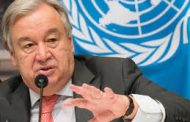By Alex Broadbent
The biggest public health risk in Africa is not Covid-19, but the consequences of regional and global measures designed to reduce its effect on public health. The cost-benefit analysis of these measures yields a different result in Africa than in Europe, North America and large parts of Asia.
By far the biggest risk factor for serious, critical or fatal Covid-19 is age. Worldometer estimates the case fatality rate in the 10 to 30 age category at 0.2%. Under the age of 10, it’s 0.0%. A recent paper in The Lancet estimated a 0.32% fatality rate in its study population of people aged 60 under, and 6.4% death rate for people over the age of 60.
In South Africa, the average male dies before the age of 60, and 3% of the population is over 65.The median age in Africa is 18. In Europe, it’s 42. Africa is the world’s youngest continent, by far.
We must ask, then, whether African nations (including South Africa) have as much reason to fear Covid-19 as regions where so much of the population is older.
One influential study, by Imperial College London, shows that the benefitsa of mitigation, considering only age, are considerably lower for the sub-Saharan African region than elsewhere. The authors are quick to point out that other factors may counteract this effect, but at this stage we are no longer modelling; we are speculating.
The comorbidities we find with Covid-19 are diseases of age. Recent research shows that HIV is correlated with reduced risk of serious Covid-19, confounding easy assumptions. Speculation cuts both ways, and cannot guide policy. But the evidence clearly shows a strong risk gradient with age.
Lockdown has immediate ramifications for individuals who live on a hand-to-mouth basis, and for their networks of dependents. If people cannot eat, they will not obey a lockdown; nor is there any reason, practical or moral, for them to do so.
And there are less immediate consequences. Economic downturn means more people below the poverty line. After the 2008 financial crisis, five million more children were hungry than otherwise would have been.
The United Nations Children’s Fund (Unicef) estimates that measures taken against Ebola (a far more serious disease) in affected areas caused 5000 excess child deaths. After 2008, medical supplies supported by international aid dried up.
At the bottom of the global pile, recession isn’t just a matter of falling property prices and disappointing pensions, it’s a matter of life and death. When we lock down, we are making a choice. We are saving the lives of some older people, and causing the deaths of some younger people, especially children, who are most at risk of malnutrition and diseases of poverty.
Maybe it’s the right thing to do. But when we talk about saving lives, we should factor in the lives we are taking. The net number is what counts.
Can the global community have really got it so wrong? Can regional leaders have been so poorly advised? Why are we taking Covid-19 so seriously, if the threat is so much less serious here than elsewhere, and the costs of lockdown so much greater?







